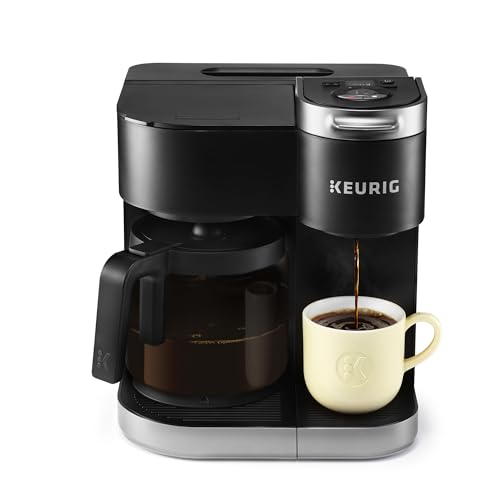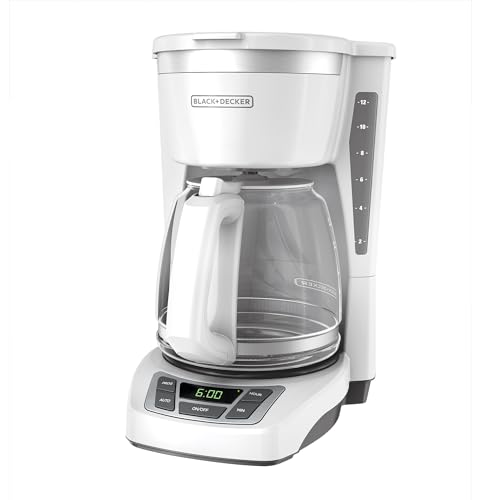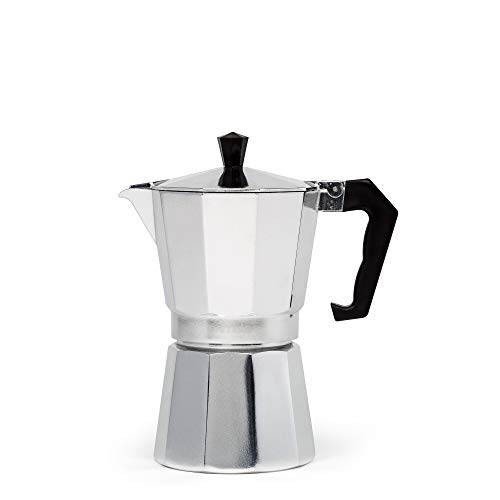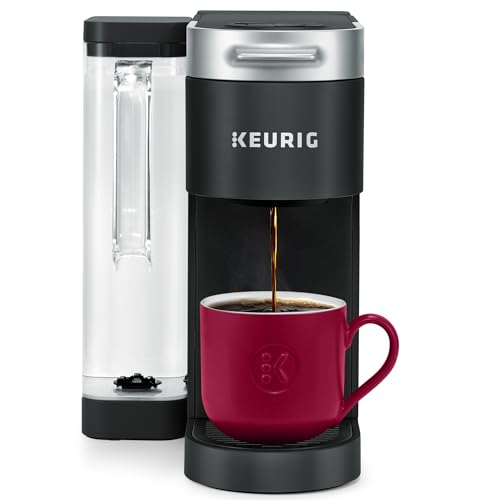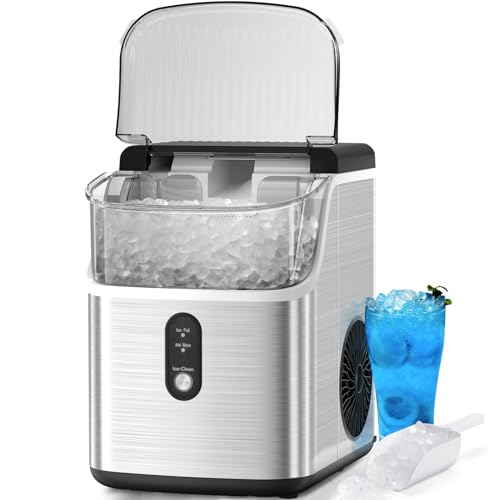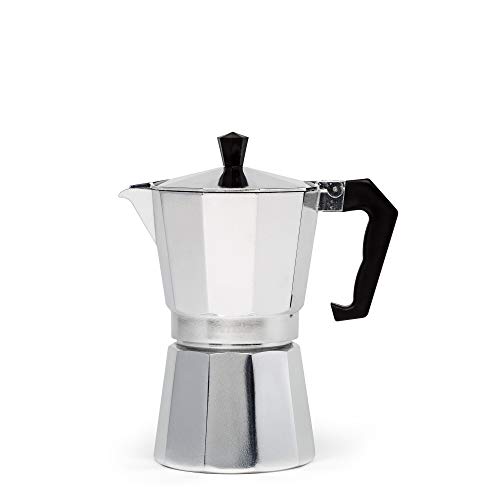“Are Onions Supposed to Be Refrigerated?” – this common question often arises in the pursuit of maximizing the shelf life of our groceries. Many of us are unsure about the best storage practices for various types of produce, particularly onions, given their unique properties.
Understanding the optimal storage conditions for various food items can significantly reduce waste and ensure the freshness of our meals. In particular, the correct storage of onions can influence their flavor, texture, and nutritional value.
This article aims to address this question, providing readers with comprehensive, scientifically-backed information. We will delve into the characteristics of onions, the factors that affect their longevity, and the recommended storage methods.
Are Onions Supposed to Be Refrigerated?
Contrary to popular belief, onions are best stored in a cool, dry, and well-ventilated area, and not in the refrigerator. The cold and damp environment inside the refrigerator can actually accelerate the decay process, causing the onions to become mushy and develop mold.
Onions, especially those that are unpeeled, naturally prefer environments where the temperature is similar to that of room temperature or slightly below. Storing them in a dark, well-ventilated space, such as a pantry or a cellar, significantly helps to extend their lifespan.
However, there are exceptions to this rule. Once an onion is peeled or cut, it should be refrigerated. The exposed flesh may attract bacteria or molds if left at room temperature. The refrigerator helps to slow down the growth of these microorganisms, thereby preserving the remaining portions of the onion.
Additionally, it’s worth noting that different types of onions have varying storage requirements. For instance, sweet onions contain more moisture than regular onions and therefore have a shorter shelf life. They, too, benefit from being kept in a cool, dry place, but their longevity will still be less compared to more “pungent” varieties.
In conclusion, while it might seem counterintuitive, refrigerating unpeeled or whole onions may do more harm than good. Sticking to traditional methods of onion storage will ensure your onions stay fresh and flavorful for longer.
What You Should Know About Storing Onions
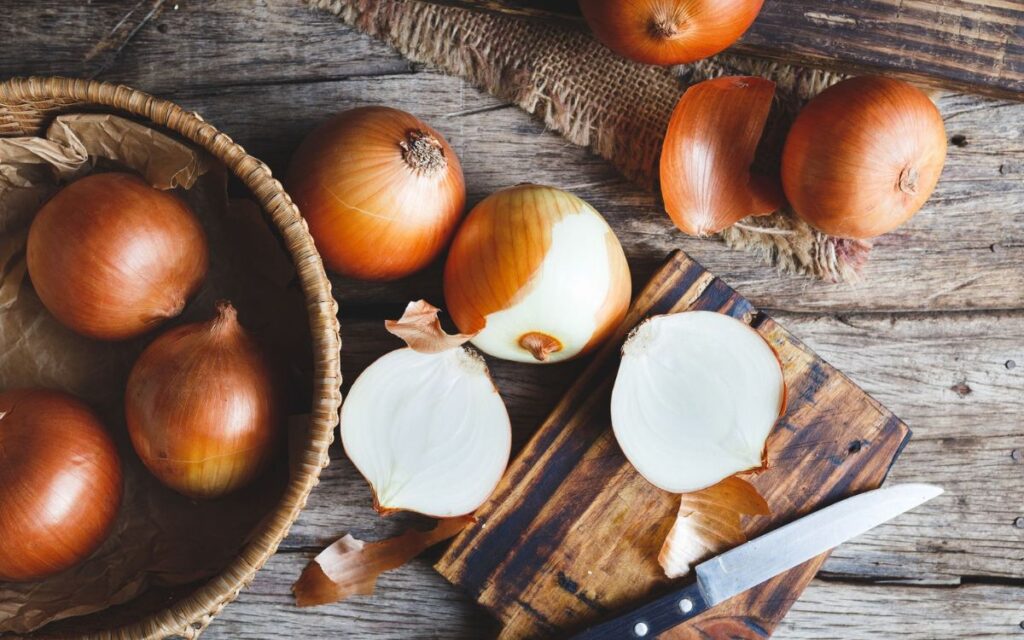
Here are some additional tips to keep in mind when storing onions. First, avoid storing onions near potatoes. While it might be convenient to store all root vegetables together, it’s actually not ideal. Potatoes emit moisture and gases that can cause onions to rot faster.
Secondly, don’t store onions in plastic bags. The lack of ventilation can cause them to become damp, leading to premature spoilage. Instead, use mesh bags or a clean and dry wooden bin for storage. This ensures that the onions get enough air circulation, preventing them from becoming moist and spoiled.
If you’re storing cut onions, make sure to use airtight containers to preserve their freshness. However, do consume them within a few days. The longer a cut onion is stored, even in the refrigerator, the more likely it is to become contaminated with bacteria.
Lastly, certain varieties of onions, such as pearl onions, pickling onions, and other small onion varieties, can be refrigerated because their higher sugar content makes them more susceptible to spoilage at room temperature. Always remember to store these onions in a breathable bag to prevent excess moisture buildup.
In summary, proper storage of onions not only extends their shelf life but also maintains their nutritional value and flavor. Adhere to these tips to ensure that you’re making the most out of your onions, reducing food waste and enhancing the taste of your meals.
Tips on How to Store Onions for Maximum Freshness
Here are some practical tips on how to store onions for maximum freshness. The first step is to choose the right onions. Look for onions that are firm and free of any visible blemishes or mold. The outer skins should be dry and crisp.
The next step is to keep them in a cool, dry, dark place with good ventilation. A basement or a pantry is often a good choice. Avoid storing onions in direct sunlight as it can cause them to spoil quickly.
Once you’ve found the perfect storage spot, it’s important to keep them separated. While it might be tempting to store onions in a basket or bowl, it’s better to spread them out. This minimizes the risk of one rotten onion contaminating the rest.
For cut or peeled onions, use them within a day or two to ensure their freshness and nutritional value. If you have to store them, refrigerate in a sealed container to prevent them from contaminating other foods.
For long-term storage, consider freezing onions. Chop them up, spread them out on a baking sheet, and freeze. Once they’re frozen, transfer them into freezer bags. Remember, frozen onions should only be used for cooking and not for fresh consumption due to the change in their texture.
In essence, appropriate storage of onions is crucial in maintaining their freshness, nutritional value, and flavor. By following these tips, your onions will retain their quality, contributing to delicious and healthy meals.
How to Tell When an Onion Has Gone Bad
Knowing when an onion has gone bad is crucial to prevent foodborne illnesses and maintain the integrity of your dishes. Over time, onions can develop a variety of signs indicating spoilage.
Firstly, the appearance of an onion can provide a clear sign of its freshness. If the onion has developed a dark, mushy spot, it’s a strong indication that it’s beginning to rot. Similarly, the presence of mold, usually black, white or green in color, signifies that the onion is no longer safe to consume.
The smell of an onion is another reliable indicator of its condition. Fresh onions have a mild aroma. If your onion gives off an unusually strong, sour or unpleasant smell, it’s likely time to discard it.
Onions that have gone bad may also feel soft or slimy to the touch. Fresh onions are typically quite firm. If you’re uncertain, a good rule of thumb is to squeeze the onion gently. If it gives under light pressure or feels hollow, it’s likely spoiled.
Another sign of a spoiled onion is if a sprout is growing out of it. While it’s not necessarily harmful, the onion’s texture and flavor may have changed. It’s better to use sprouted onions for planting rather than cooking.
Finally, the taste can also help determine the freshness of an onion. If the flavor is off or not what you’d expect from an onion, it’s best to discard it.
In essence, checking the appearance, smell, texture and taste of an onion can guide you in evaluating its freshness and edibility. Trust your senses, and when in doubt, it’s safer to throw it out.
Frequently Asked Questions about Storing Onions
Concerning the storage of onions, there are several common questions that often pop up. These typically relate to the best practices for prolonging an onion’s shelf life, identifying when an onion has gone bad, and the specific storage needs of different varieties of onions.
Why shouldn’t onions be stored in the refrigerator?
Storing unpeeled or whole onions in the refrigerator can be detrimental to their longevity. The cold, damp conditions of the refrigerator can cause onions to become moldy or rot.
Onions are best stored in a cool, dry, and well-ventilated place, away from direct sunlight. The ideal storage conditions enable the onions to stay fresh and retain their nutritional value for a longer period.
Why is it important to avoid storing onions near potatoes?
Potatoes and onions should not be stored together because potatoes emit moisture and gases that can accelerate the rotting process in onions. It might seem convenient to store all root vegetables together, but the differing storage needs of these two vegetables make this a bad practice. Proper storage can help to extend the life of your onions, thereby reducing food waste.
How can I tell if an onion has gone bad?
There are several signs to look out for to determine if an onion has gone bad. If the onion has a dark or mushy spot, it is likely beginning to rot. The presence of mold is another clear sign that an onion is no longer safe to consume.
Additionally, a strong, sour, or unpleasant smell can indicate spoilage. If the onion feels soft or slimy to the touch or gives under light pressure, it’s probably spoiled. Lastly, a change in taste is a clear indicator of a spoiled onion. Always trust your senses when evaluating the freshness of an onion.
Final Thought
Onions are a versatile ingredient that adds flavor and depth to a variety of dishes. Knowing how to store them properly can dramatically extend their shelf life, reducing waste and allowing you to make the most of this staple ingredient.
The right storage conditions can keep your onions fresh and full of flavor for weeks, if not months. Remember, the key to preventing spoilage is to keep them cool, dry, and well-ventilated.
Storing onions properly isn’t just about prolonging their life, it’s also about maintaining their nutritional value and flavor. So the next time you’re wondering, “Are onions supposed to be refrigerated?”, you’ll know exactly what to do. With the right storage, you can enjoy your onions for a long time to come!
Most importantly, never forget to trust your senses when evaluating an onion’s freshness and edibility. If the appearance, smell, texture or taste are off, discard it immediately as consuming spoilage onions can lead to foodborne illnesses.
